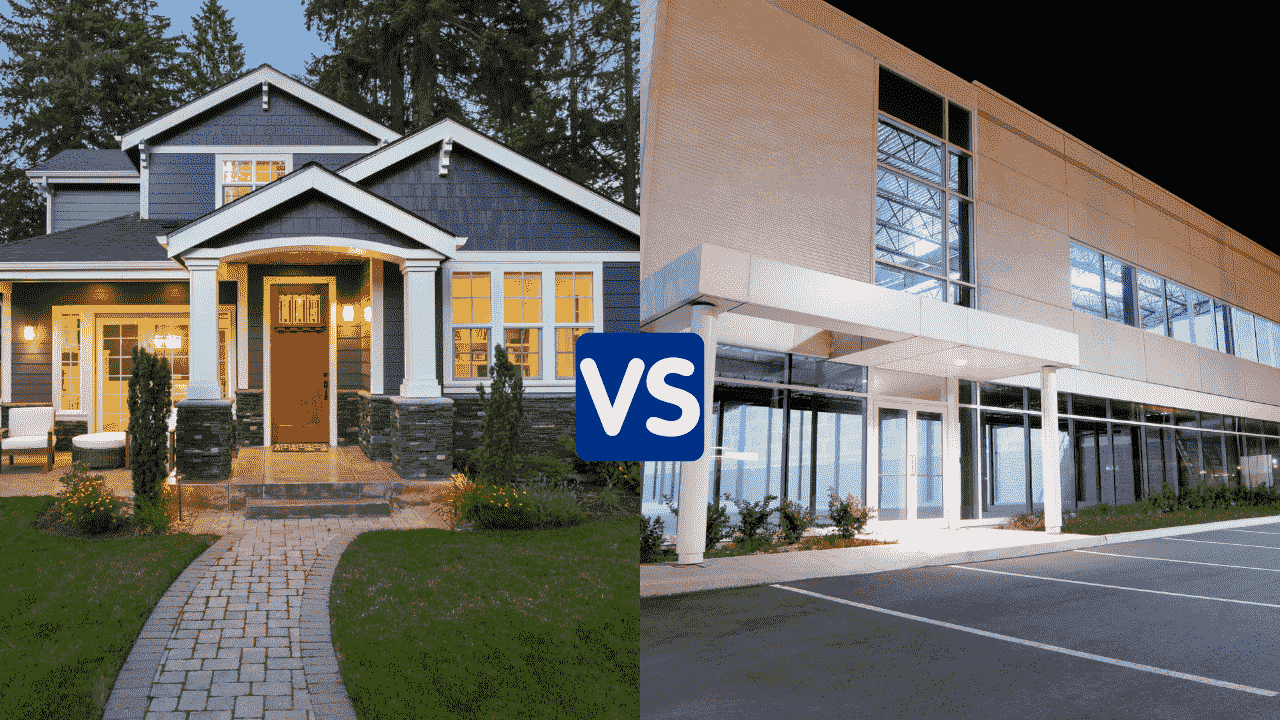
Introduction
Investing in real estate is a significant decision, and the choice between commercial property vs residential property investment adds a layer of complexity. In this guide, we delve into the key aspects differentiating these two types of properties, offering insights to help you navigate the intricate landscape of real estate investment.
Commercial Property vs Residential Property Investment: An In-Depth Analysis
Commercial Property: Unveiling the Business Terrain
Defining Commercial Real Estate
Commercial properties encompass a spectrum from office spaces to industrial complexes. These are designed for business operations, often housing offices, retail outlets, or manufacturing facilities.

Investment Potential
The allure of commercial real estate lies in its potential for higher returns. Leases with businesses typically result in stable, long-term income streams, making it an attractive option for investors seeking financial growth.
Financial Considerations
While the upfront costs and maintenance of commercial properties can be higher, the potential for increased rental income can offset these expenses over time.
Residential Property: Crafting Emotional Sanctuaries
Residential Real Estate Basics
Residential properties, such as houses and apartments, are designed for individuals and families to reside in, emphasizing comfort and a sense of home.
Emotional Value
The emotional connection associated with owning a residential property, creating lasting memories, and establishing roots adds a unique dimension to residential property investment.

Financial Considerations
Residential properties often come with lower entry barriers, making them more accessible for investors. While the income potential may be moderate, the stability and emotional value can outweigh financial considerations.
Commercial Property vs Residential Property Investment: Weighing the Pros and Cons
Pros and Cons of Commercial Property
Pros
- Higher Income Potential: Commercial properties often yield higher rental incomes.
- Longer Lease Terms: Leases with businesses typically have longer durations.
Cons
- Higher Maintenance Costs: Commercial properties may incur higher maintenance expenses.
- Vulnerability to Economic Downturns: Economic fluctuations can impact the performance of commercial properties.
Pros and Cons of Residential Property
Pros
- Emotional Value: Residential properties hold sentimental value for homeowners.
- Stable Demand: There’s a consistent demand for residential properties.
Cons
- Lower Income Potential: Rental income from residential properties may be lower.
- Market Fluctuations: Residential properties can be influenced by local market fluctuations.
Making the Decision: Assessing Goals and Risk Tolerance
Assessing Your Goals
Your investment goals play a pivotal role in deciding between commercial and residential properties. Commercial properties may align with those seeking higher returns, while residential properties offer stability and emotional fulfillment.
Risk Tolerance
Consider your risk tolerance. Commercial real estate ventures often involve higher risks but potentially higher rewards. Residential properties offer a more conservative investment approach.
Commercial Property vs Residential Property : FAQs
- How do I assess the profitability of commercial vs residential properties? Assess profitability based on factors like location, market conditions, and investment goals.
- Do residential properties have long-term value? Yes, residential properties often gain long-term value influenced by location and market trends.
- How does an economic downturn affect commercial properties? Commercial properties can be vulnerable during economic downturns due to businesses cutting costs.
- Can I live in a commercial property? Zoning regulations typically prohibit residential living in commercial properties.
- What’s the minimum investment for commercial real estate? The minimum investment for commercial real estate varies; consult with professionals for accurate information.
Conclusion
In the dynamic realm of real estate, choosing between commercial and residential properties hinges on your investment goals, risk appetite, and personal preferences. Each option presents unique opportunities and challenges, and understanding these distinctions is crucial for making informed decisions.





Leave a Reply